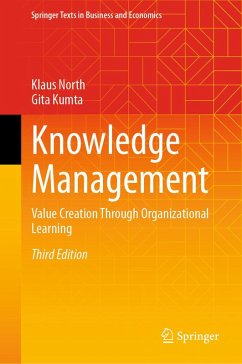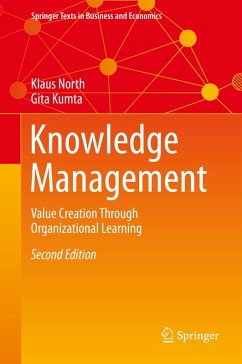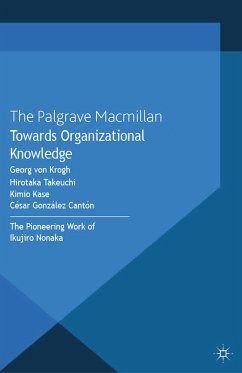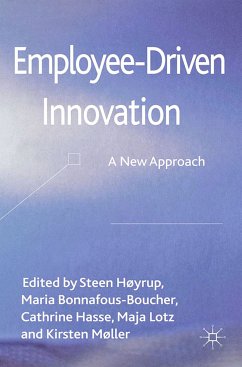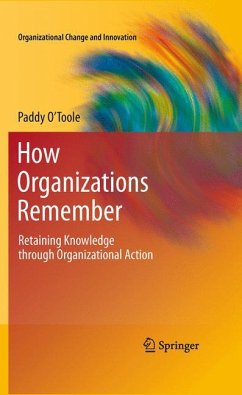
How Organizations Remember (eBook, PDF)
Retaining Knowledge through Organizational Action
Versandkostenfrei!
Sofort per Download lieferbar
72,95 €
inkl. MwSt.
Weitere Ausgaben:

PAYBACK Punkte
36 °P sammeln!
How an organization works is largely a function of what it knows-i.e., the collective knowledge about all aspects of the enterprise, from competitive intelligence to formal systems and policies to the ways in which individuals solve problems and share their expertise. Organizational knowledge is not to be found in manuals and web sites, but in the day-to-day interactions among employees, suppliers, customers, investors, and other stakeholders. How Organizations Remember is based on a 10-month study of a technology firm with locations in three countries (Australia, US, and Ireland); the company...
How an organization works is largely a function of what it knows-i.e., the collective knowledge about all aspects of the enterprise, from competitive intelligence to formal systems and policies to the ways in which individuals solve problems and share their expertise. Organizational knowledge is not to be found in manuals and web sites, but in the day-to-day interactions among employees, suppliers, customers, investors, and other stakeholders. How Organizations Remember is based on a 10-month study of a technology firm with locations in three countries (Australia, US, and Ireland); the company has undergone rapid growth and expansion, which have had a profound impact on power structures and organizational culture, and hence, on the ways in which knowledge is created and disseminated. The author discovered that what is remembered is diverse, and of differing value within and across the organization. How knowledge is remembered is equally diverse, and ranges from computer files to cartoons on the wall, from stories to the way objects are placed on a desk. Knowledge is influenced by external influences as well as internal influences; knowledge may become a competitive advantage, but may also contribute to inertia. The book combines theoretical perspectives and empirical findings to generate insights that contribute to both research and practice in organizational learning, innovation, culture, and behavior.
Dieser Download kann aus rechtlichen Gründen nur mit Rechnungsadresse in A, B, BG, CY, CZ, D, DK, EW, E, FIN, F, GR, HR, H, IRL, I, LT, L, LR, M, NL, PL, P, R, S, SLO, SK ausgeliefert werden.




